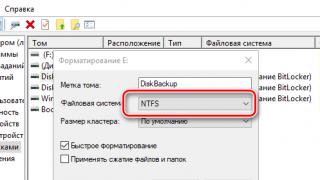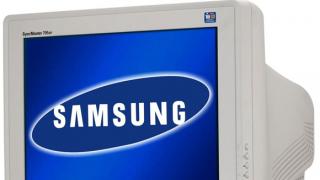When asked which Windows is better XP or VISTA? given by the author Oksana Koledova the best answer is About Vista!
In the new Windows Vista operating system, which was recently released to the market,
users have already found significant flaws. They are alarmed by the possibility of "malicious"
use of audio files sent by e-mail. Oddly enough, the company itself admitted
that a new feature could cause problems for users if the computer
he will give himself a command to erase the files.
The new operating system is able to recognize voice commands. And despite assurances
representatives of the company and developers that “there are additional barriers
which make it much more difficult for attempts to steal information” , users are concerned about the possibility
using the voice instructions in the MP3 file to instruct the computer to erase the documents.
"Voice commands cannot be used to register a new user and format a drive"
Microsoft said that "it is technically possible", but do not worry, and explained,
that in order to use such a scheme, the voice recognition function must be activated and
configured, the microphone and speakers must also be turned on. “In this case, the voice recognition function
commands will have to receive through the microphone instructions such as "copy", "delete", "turn off", etc.,
and fulfill them, ”explains a Microsoft security officer, BBC reports. In addition, voice
commands cannot be used to register a new user and format a drive. Moreover, it is very important
the parameter is the location of the speakers and microphone, as well as the clarity of pronunciation. According to the developers of the new version
Windows, this will make it much more difficult to penetrate the information contained in the computer. However, despite
to all assurances from company representatives, to some Vista users who have tried this,
managed to permanently delete the files and empty the "trash can". Vista is the latest generation of the popular
Windows operating system launched in 1995. The Bill Gates company assures that the new program
more convenient than previous generations of Windows, provides effective protection for computers, and also has more
attractive interface. In general, Vista does not offer anything revolutionary. The main difference between the new
system from older versions has become its appearance. The new Aero interface uses 3D graphics to create
translucent windows that appear on the computer screen. Other changes are less visible at first glance:
an advanced security system developed by specialists from the Central
Intelligence Directorate, search panels that make it easier to find information, as well as a new
multimedia platform for digital music, video and pictures. Recall
that the development of Vista was spent 6 billion dollars. Vista developers claim that in the new version
they managed to avoid many of the shortcomings of earlier versions of Windows. Meanwhile, in the Western press
information has repeatedly appeared that hackers hacked the system even before it was released to the market.
And pirated copies of Vista are already on sale in China. The cost of the program is 1 euro.
Microsoft expected to sell Vista in China for 200-320 euros
Answer from Barracuda[guru]
At the moment - hr. Vista is beautiful, but damp. And to put it to play and admire - a perversion. Many opportunities are simply not realized. Let's say the old equipment is simply not recognized, programs and toys are not installed.
To be honest, the results were a little surprising for me. While they didn't deal a devastating blow to Windows 7 overall, they did show that XP outperformed Windows 7 in some tests on older hardware.
First, I performed a clean install of each operating system on a Toshiba Satellite M45-S269 laptop with a 1.73GHz processor, 1GB of memory, and a 100GB hard drive. It seemed to me that leaving XP would be interesting for both business and individual users, so I chose Windows XP Professional and the corresponding professional editions of Vista and Windows 7 for installation. All operating systems were 32-bit. For each of them, again, I did a clean install.
Considering that testing a computer without installed programs will not tell much about its actual performance, I installed Microsoft Office 2007 Ultimate, Windows Live Essentials (Mail, Movie Maker, Photo Gallery, Messenger) and Picasa 3.5 on each OC. I then ran a series of tests, trying to determine the boot and shutdown times for each operating system, as well as the performance of each. I ran each test at least three times and averaged the results.
Windows 7 vs. XP and Vista | Loading and shutting down
The results of these two most common tests were somewhat surprising. To measure boot time, I pressed the computer's power button and turned off the timer at the moment when the desktop and all interface elements appeared on the screen, and the Start menu came to a working state. As a result, Windows XP posted the best time, Windows 7 came in second, 14 seconds behind XP, and Vista was last, another 4 seconds behind.
Yes, XP won on boot. However, keep in mind that the machine on which the test was run was created in the days of XP. Newer machines, on the other hand, will probably be more geared towards fast booting Windows 7. And possibly even very fast booting. However, boot testing on new machines would be pointless for this story, because this article is about what people can look forward to when moving from their old operating systems to a new one, which for many also means an old machine.
After losing the boot test, Windows 7 equalized when it came to shutting down. In this test, Windows 7 beat XP by a whopping 5.5 seconds, or 32 percent. At the same time, as in my previous test, Vista outperformed Windows 7 in both boot and shutdown.
By the way, one of the main reasons for criticism of XP was the relatively slow performance of the operating system at shutdown. And my test also confirmed this. Even Vista ended faster than XP. Although, for most users, the boot time of the operating system is more important. And in this regard, XP is in the lead.
Windows 7 vs. XP and Vista | Picasa 3.5
Due to the fact that Windows Live Movie Maker does not work under Windows XP, I had to use Picasa 3.5 for the video encoding test. From seven video clips and photos, I created a one-minute movie and then used Picasa's Create Movie option to output it at 720p. As a result, XP again outperformed Windows 7. However, both operating systems outperformed Vista by about 20 seconds.

Windows 7 vs. XP and Vista | Geekbench
This score from Primate Labs performs a series of crazy tests like prime numbers, the Mandelbrot set, BlowFish encryption, text compression, image sharpening/blurring, and a streaming memory test. Subtests include both single-threaded and multi-threaded applications. All of these tests are very demanding on the hardware, but even on the same laptop, switching from XP or Vista to Windows 7 resulted in an increase in program scores.

Windows 7 vs. XP and Vista | sunspider
The most striking result came from the SunSpider JavaScript performance test. In it, Windows 7 showed a 42% advantage over XP and 26% over Vista. On all three operating systems, the test was run under Firefox 3.5. I contacted Mozilla representatives and tried to find out the reason for the increase in performance of their browser under Windows 7. However, none of them could answer this question.

Windows 7 vs. XP and Vista | PCMark
The PCMark05 score puts the system through 11 tests, each representing a different kind of computer usage. Specifically, the assessment includes tests such as hard disk access, 3D and graphics rendering, web page rendering, file decryption, and multithreading with video, audio, text editing, and image decompression. The program presents the results of the work in PCMark points. The higher the score, the better the performance.
For testing, I had to use PCMark05 v.1.2.0, because. the latest version of the program - PCMark Vantage - does not work under Windows XP. At the same time, running PCMark05 under Windows 7 was also a little tricky. Initially, I had to right-click on the program icon, then select "resolve compatibility issues" and in the dialog that appeared, choose to run the program in Windows XP mode (note that this option is only present in Professional, Ultimate and Enterprise editions of Windows 7).
However, I wanted to test Windows 7 itself, not its XP emulation. After downloading the patch from Futuremark and choosing to run as administrator, I was still able to run the assessment from under Windows 7. By the way, the program reported that it was running under Windows 7 and not under XP. Also, it's worth noting that on each of the three operating systems, I've set Firefox 3.5 as the default browser, because PCMark also uses a browser in its testing.
What are the results? Moving from Windows XP to Windows 7 resulted in a slight drop in PCMark scores (about 2%). Also XP was 7% better than Vista. And Windows 7 was 5% better than Vista. This means that among these three operating systems, XP will be the best for gaming. the test is focused on tasks performed by games.

Be aware, however, that the latest games require DirectX 10 and DirectX 11 and won't run on XP. However, the results show another small victory for XP over Windows 7, not to mention Vista.
Windows 7 vs. XP and Vista | Windows 7 Performance Conclusions
Most of the tests conducted did not show a significant advantage of Windows 7 over Windows XP. However, for an operating system that is much richer in terms of features and interface, the results of Windows 7 were not bad at all. The new operating system showed the most impressive lead over Windows XP in shutdown tests and in JavaScript. Many of you may have noticed that Windows 7 outperformed Vista in all tests. However, Vista actually showed its edge over XP in the shutdown tests and SunSpider. Although it took much longer to boot than XP.
Yes, you might not expect Windows 7, with all its richness and interface features, to have a performance advantage over XP and Vista, but I'm still disappointed that I didn't see Windows 7 at the top of my tests. I was especially upset by the boot time of the operating system, which Microsoft promised to make minimal.
At the same time, the much better performance of JavaScript under Windows 7 should definitely become more important to most users, as web applications are getting richer and richer. For gamers, the results between XP and Windows 7 on an old machine are pretty close. However, given that gamers are more likely to buy a new high-performance machine than an old one, the choice of operating system is an obvious one for them.
All in all, Windows 7's performance boost should take away from Microsoft's reputation as a company whose operating systems are prohibitively bloated and demanding on hardware. Windows 7 did not take the last places in any test. At the same time, XP ended up in last place three times. While the results for Windows 7 aren't perfect, they show that Microsoft seems to have recognized the fact that it shouldn't rely on Moore's Law and release increasingly demanding operating systems for ever-increasing computing power. That's pretty nice, especially given the current demand for low-end, low-end netbooks.
Which is better windows vista or windows xp?
What is better at the moment windows vista or windows xp?
Most new computers come with windows vista pre-installed. But most people are used to using the windows xp operating system. What should the user choose at the moment windows xp or windows vista?
Windows XP is an outdated operating system that used 32 bits for data processing. At the moment, many programs have been written for windows xp that have not yet been adapted for windows vista. Its advantages over windows vista is that this system has been debugged and has undergone many improvements and there are currently fewer problems in it than in windows vista.
Windows Vista is a new product from Microsoft that is 64-bit and is used for dual-core processors. At the moment, windows vista has a lot of improvements that make working with this operating system a torment. Most programs are simply not installed under this operating system. Its advantages lie in multitasking and productivity.
At the moment, we advise you to install windows xp, because it is a more polished operating system. It is clear that over time, in a year or two, you still have to switch to the windows vista operating system. During this time, windows vista developers will bring it to mind, many applications will be adapted to work with this operating system.
In order to reinstall the operating system, you must repartition the hard disk and delete the partition where windows vista is stored. Only after that the windows xp operating system will be installed on the hard drive. The bootloader that comes with this operating system only sees the windows vista partition.
One of the problems that may occur during the reinstallation of windows xp is the incorrect partitioning of the hard drive. It is advisable to do this procedure for people with the necessary skills. Disk partitioning can be done using any program that works with hard disk partitions. Such as Acronis, Partition Magic or any other similar program.
Now that Windows Vista SP1 is on the horizon, many organizations that have previously been reluctant to move to Vista will begin the process of upgrading their operating systems. However, there are some that will remain true to Windows XP for the foreseeable future. So which one is right? Or maybe both are right?
While this may seem like flattery to some, Vista does have positive qualities. But on the other hand, Windows XP continues to provide very important features in production. So when does it make sense for businesses to use both Windows Vista and Windows XP? And what are the obstacles along the way?
At my organization, a private liberal arts college, we use Vista on every new laptop we get. Our desktop computers continue to run Windows XP. Here are our arguments on the matter:
- Key Factor: With BitLocker encryption, your information will be better protected if your laptop is lost or stolen. On our desktops, we deliberately ditched Vista in order to continue working with XP
- The use of two operating systems is by no means uncommon and is often practiced when migrating from one OS to another.
- Only new laptops run Windows Vista and they must be equipped with at least 2 GB of RAM
- Eventually, both Vista and XP will be phased out. Vista, like XP before it, will supplant its predecessor when the old operating system is no longer a necessity. If we can start deploying Vista on a small number of machines, then we can later make a full transition to Vista without any inconvenience to users. We consider switching our laptops to Vista as something of an experiment.
- Our students come to us with their computers pre-installed with Vista, so we should provide them with support. So even though Vista is only deployed on computers used by students, we can provide our students with comprehensive support.
Of course, there are some difficulties along the way that you will have to face:
- App Compatibility - Will all the apps you need work? Our solution: We test the compatibility of our applications. For those that don't have Vista support, there may be newer versions that do, or that can run in compatibility mode. So far, most of our applications either work fine under Vista or have new versions that are compatible with this OS.
- System performance - will computers be able to provide users with the level of performance they need? With 2GB of RAM, Vista runs great, even with Aero enabled. As mentioned earlier, we only install Vista on new machines. We will not upgrade old hardware
- BitLocker Encrypted Data Loss - What Happens If PC Stops Booting and Requires System Restore? If the drive is encrypted and you have to manually restore the data, how can this be done? There is a way that BitLocker keys can be stored in Active Directory, and we are continuing to explore this method.
- It's more difficult to provide "spare" computers: today, when a user's laptop fails, we can simply move the hard drive to a temporary machine (assuming, of course, that the failing device isn't the hard drive itself). In the presence of two operating systems, this task is somewhat more complicated and may require additional time.
- User training. It's still the same Windows, though a little different. Microsoft has made many changes to the way the user interacts with the operating system. Some of them are useful, some are not, but they affect the user experience in one way or another. Our support department should not be ready to answer all questions related to these changes.
My team and I are still debating the pros and cons of such an update, and it's possible that in the end we will come to the conclusion that it would be better to postpone all this for a year. Many organizations have faced the same problems. But there is always a solution: preparations for migrating to Vista are long overdue, but it's too early to abandon Windows XP, and there's no real need for it yet. Of course, it all depends on the environment in which the OS is used, but you can always find a compromise between something new and something proven.



